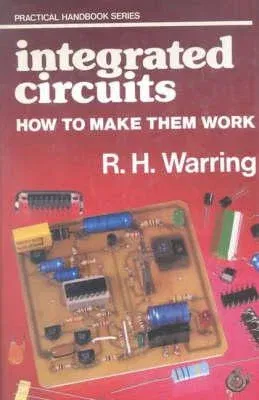Integrated circuits - or ICs - have largely replaced transistors in all
forms of electronic equipment for the home and industry. The modern
electronics engineer automatically adopts them as standard practice.
This book offers a completely practical introduction for the amateur to
the fascinating worlds of using ICs, in the home or workshop, and
turning them into working circuits. ICs are 'complete' or near-complete
circuits which normally need only a few external components added to
produce a working electronic device. They are extremely compact and
efficient in performance. Due to large-scale manufacture, they are also
relatively inexpensive. The problem for the amateur is to know which IC
is suitable for his or her particular needs - and then how to
incorporate it into a working circuit. The author answers these problems
by describing the different 'families' of ICs, how to identify their
connections, and how they are connected to external components to make
working circuits, usually with only the addition of a few resistors and
a capacitor or two. One of the great advantages of using ICs, in fact,
is the small total number of components usually required and their lower
total cost (including the IC) compared with building a similar circuit
from separate components. There are literally thousands of different ICs
available today, from simple 'Op-Amps' to complete digital circuits. The
author has selected a number of representative types, all of which are
readily available, in describing and illustrating eighty-four working
circuits. These range from simple voltage regulators to complete radios
and electronic organs. Many other useful projects are also included,
like a car thief alarm; an ice-warning indicator; filters and hi-fi tone
controls; pulse generators; an infra-red transmitter and receiver; an
electronic rev counter; a quartz crystal clock; and many, many more.
This book will prove vital for anyone interested in, or in any way
concerned with, modern electronics practice.

